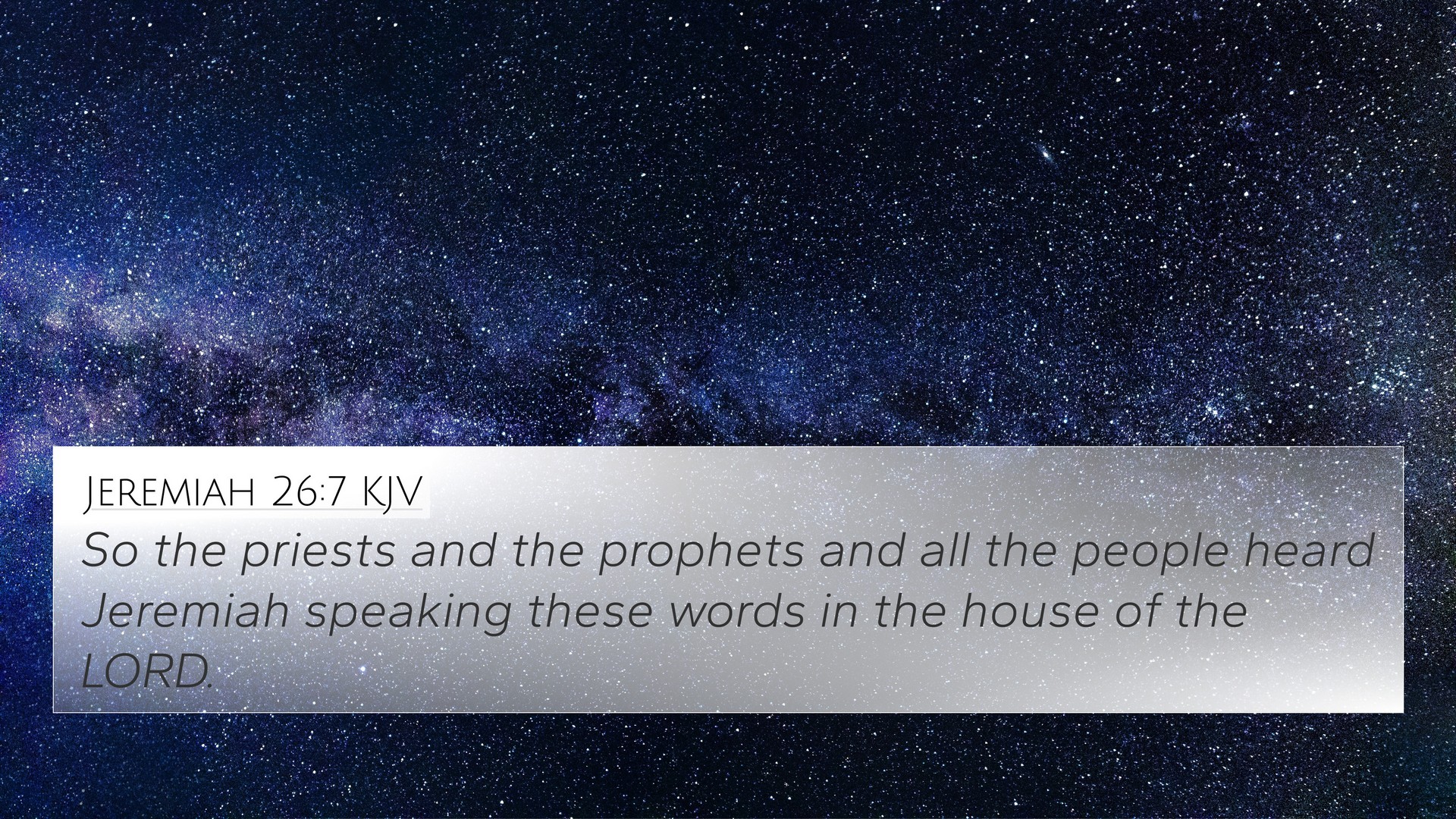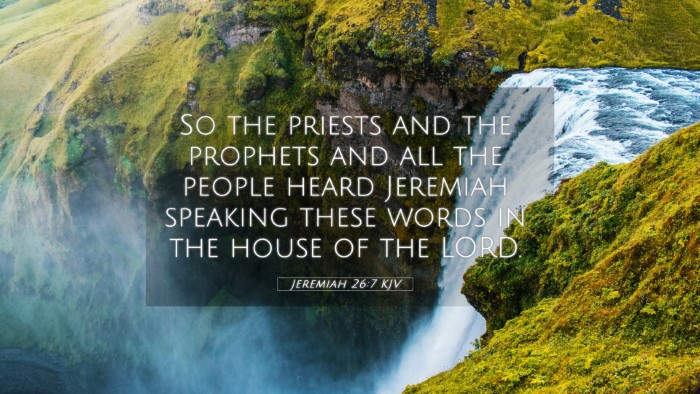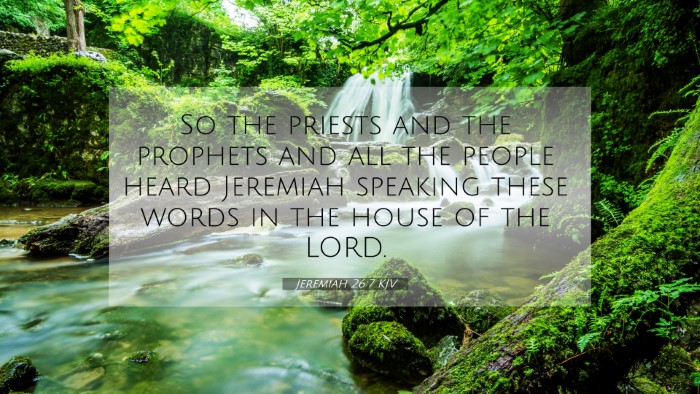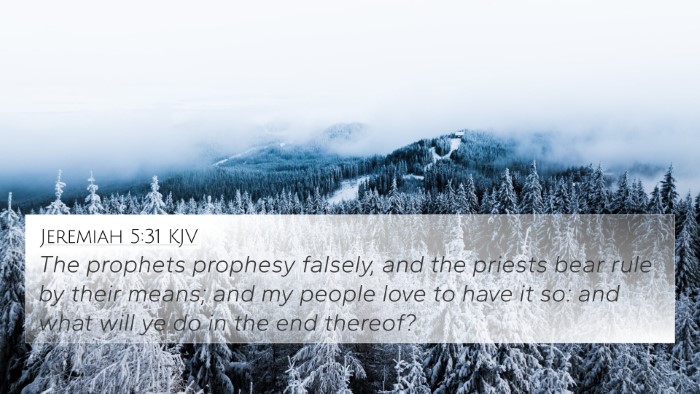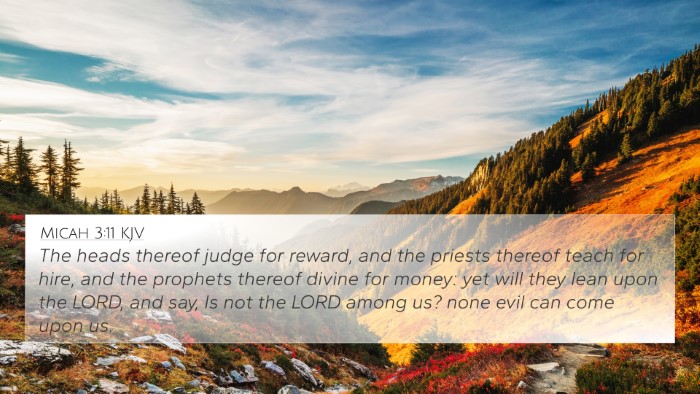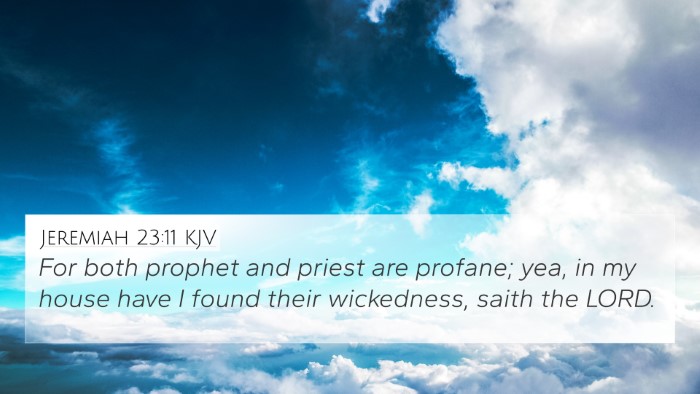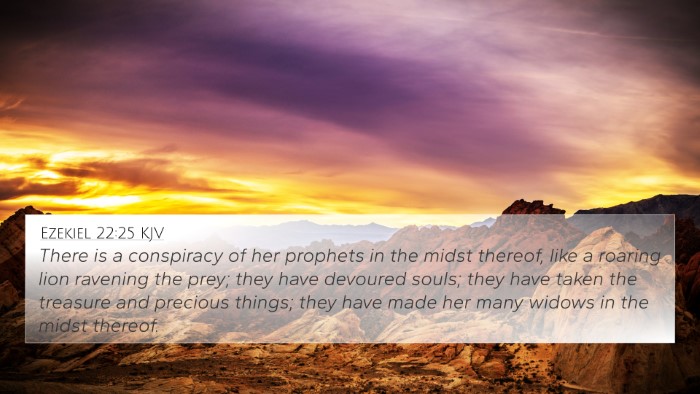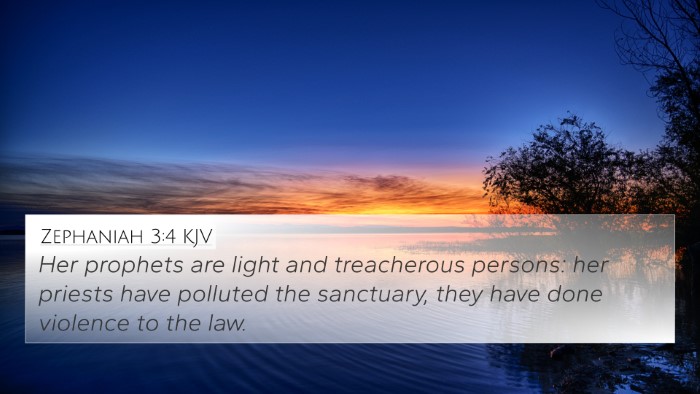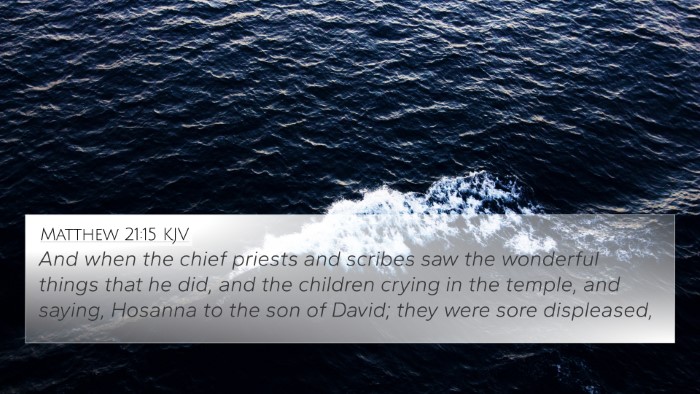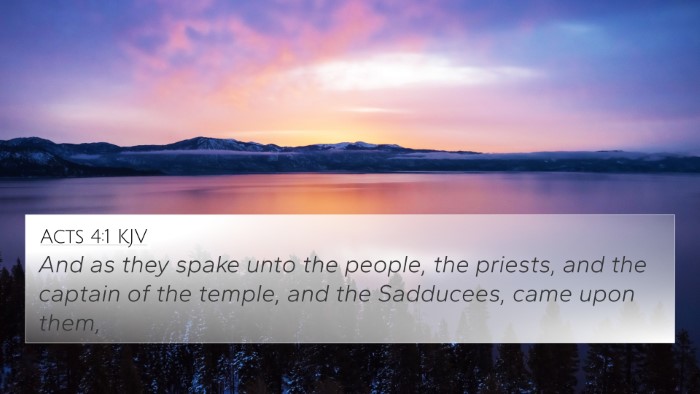Understanding Jeremiah 26:7
Jeremiah 26:7 states:
"So the priests and the prophets and all the people heard Jeremiah speaking these words in the house of the Lord."
This verse occurs during the prophet Jeremiah's ministry, where he delivers a critical message in the temple, a public place of worship and national significance. In this context, the verse highlights the reception of his prophetic words by a diverse group, including priests, prophets, and the populace.
Summary of Meaning
The essence of Jeremiah 26:7 encapsulates a profound moment where the authority of God's word is being proclaimed to a gathering of influential figures and regular citizens.
- Public Proclamation: Jeremiah’s message being heard indicates the importance of public testimony and accountability within the community.
- Diverse Audience: The involvement of priests and prophets shows the universality of God's warning, implying that no one is exempt from listening to the divine call for repentance.
- House of the Lord: Delivering the message in the temple signifies the sacredness of the setting, where worship and divine communication occur.
Commentary Insights
Matthew Henry's Commentary
Matthew Henry emphasizes that the message delivered by Jeremiah was significant for the nation. He notes that the attention was drawn not only from those in spiritual leadership but also from the people who were present, highlighting a collective responsibility in witnessing God's words. The verse serves as a backdrop for understanding prophetic ministry amid national crises.
Albert Barnes' Commentary
Albert Barnes draws attention to the immediate response of the Jewish leaders and the people. He notes that this public declaration reflects both a risk and an opportunity—risk for Jeremiah as he faces opposition and potential punishment, and opportunity for the people to turn back to God. Barnes highlights the serious nature of Jeremiah’s messages regarding impending judgment.
Adam Clarke's Commentary
Adam Clarke complements the discussion by suggesting that the multitude who congregated represents different strata of society responding to God’s confirmation through Jeremiah. He indicates that the gravity of the message was not lost on the audience, who were accustomed to receiving divine revelations in such a holy place.
Cross-References
This verse connects to several other Biblical passages, providing a broader context of the theme of prophetic messages and the response of God's people:
- Jeremiah 7:2: "Stand in the gate of the Lord's house, and proclaim there this word."
- Ezekiel 18:30: "Therefore I will judge you, O house of Israel, every one according to his ways, says the Lord God. Repent, and turn from all your offenses,..."
- Micah 2:6: "Do not preach—thus they preach. One should not preach of such things; disgrace will not overtake us."
- Acts 7:51: "You stiff-necked and uncircumcised in heart and ears, you always resist the Holy Spirit..."
- Isaiah 58:1: "Cry aloud; do not hold back; lift up your voice like a trumpet..."
- 2 Chronicles 36:15: "The Lord, the God of their ancestors, sent word to them through his messengers again and again..."
- Luke 13:34: "Jerusalem, Jerusalem, you who kill the prophets..."
Connecting Themes and Lessons
The verse and its interpretations offer significant theological insights:
- Prophetic Voices: Understanding the role prophets played in calling nations to repentance.
- Divine Judgment: Acknowledging the call to repentance is vital to avert divine judgment.
- Public Accountability: Emphasizing the necessity for a community to engage with God's message collectively.
Conclusion
Jeremiah 26:7 serves as a critical reminder of the importance of heeding prophetic words and understanding the implications of collective spiritual responsibility. The diverse response to Jeremiah's declaration points toward the theme of God's persistent call for His people to remain faithful and attentive.
